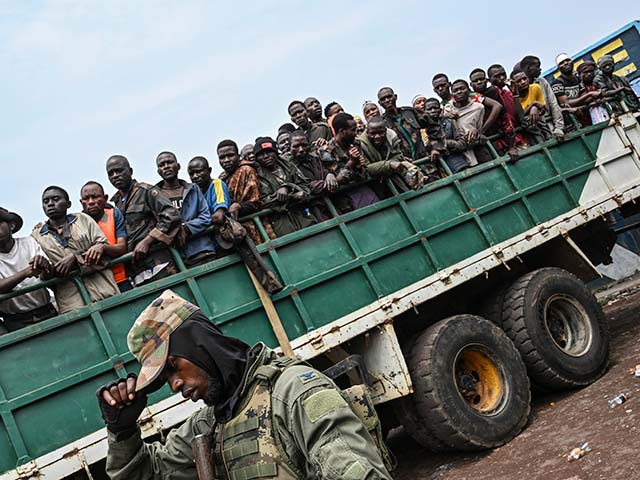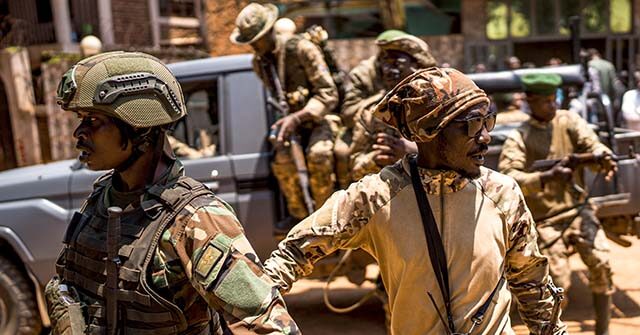Judith Suminwa, prime minister of the Democratic Republic of Congo (DRC), told a meeting of the U.N. Human Rights Council (UNHRC) on Monday that roughly 7,000 people have been killed in fighting since January as a rebel offensive swept through the eastern Congo.
Suminwa said 3,000 of those deaths occurred in and around Goma, the provincial capital captured by M23 rebels in late January. She said the assault on Goma also displaced 450,000 people by destroying the camps around the city where they had been living since the rebels drove them out of their eastern homes.
“It is impossible to describe the screams and cries of millions of victims of this conflict,” Suminwa told an HRC meeting in Geneva on Monday.
M23 rebels patrol the streets of Goma, Democratic Republic of the Congo, on Wednesday, January 29, 2025. (AP Photo/Brian Inganga)
“If this question of the violation of territorial integrity isn’t resolved, the situation could degenerate,” she warned, accusing M23 and other insurgent groups of plotting attacks on neighboring countries if they cannot be contained in the DRC.
M23, the strongest of nearly a hundred insurgent groups and ethnic militias operating in the DRC, captured another major city called Bukavu last week. Hundreds of DRC police officers stationed in Bukavu switched sides and joined M23 on Saturday, saying they were ready to help the insurgents consolidate their grip on the second-largest city in the Congo.
The turncoat police officers changed uniforms and said they would undergo several days of retraining before returning to duty for the conquering rebel group. According to a spokesman for the rebels, about 1,800 police officers have switched sides so far, and another 500 are expected to surrender shortly.

M23 rebels escort government soldiers and police who surrendered to an undisclosed location in Goma, Democratic Republic of the Congo, on Thursday, January 30, 2025. (AP Photo/Moses Sawasawa)
The announcement of police officers joining M23 in large numbers seemed like a response to the U.N. Security Council (UNSC) resolution adopted on Friday that called for M23 to stop fighting and withdraw from the cities it has conquered.
The M23 rebel group belongs to a larger alliance called the AFC, whose militias are harrying the DRC military on several fronts, capturing key towns and airfields over the past few weeks. Most of these constituent militias are drawn from the Tutsi tribe, which is also the dominant group in neighboring Rwanda.
The DRC has long accused Rwanda of supporting M23, and Rwandan troops have been seen in the company of M23 rebels as they captured the cities of Goma and Bukavu. UNSC’s resolution on Friday called on Rwanda to halt “direct support” for M23 and “withdraw from DRC territory without preconditions.” There has been no sign, to date, of Rwanda complying with these demands.
Read the full article here
